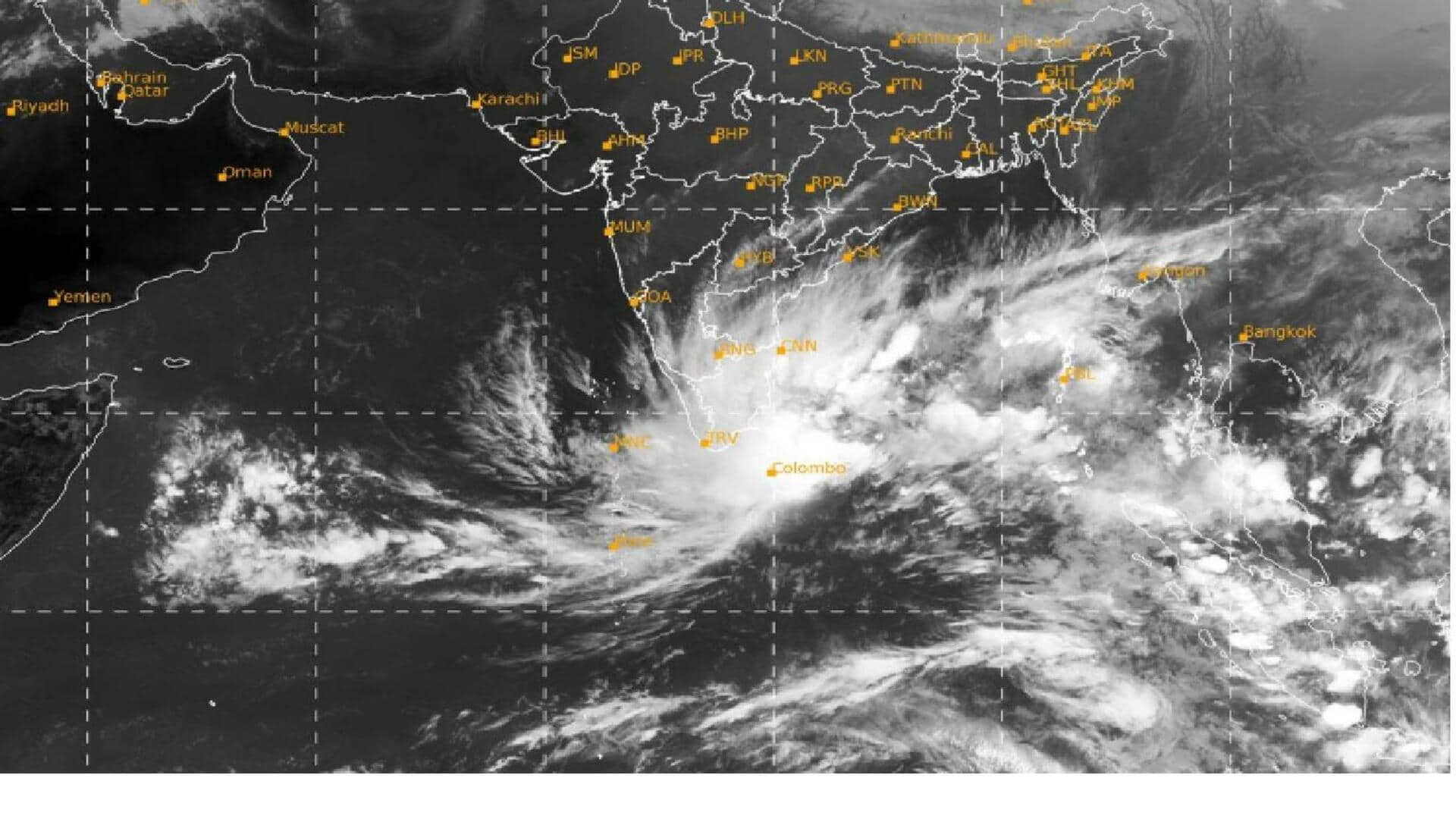
Cyclone Fengal to form over Bay of Bengal, impact TN
What's the story
A deep depression in the southwest Bay of Bengal is likely to intensify into Cyclone Fengal by Wednesday, the India Meteorological Department (IMD) has warned. The system is currently located about 310km southeast of Trincomalee, Sri Lanka, and is moving north-northwest toward the Tamil Nadu coast. The IMD has issued a red alert for several Tamil Nadu districts including Mayiladuthurai, Karaikal, Nagapattinam, and Thiruvarur on Tuesday.
Weather impact
Heavy rainfall, strong winds expected across Tamil Nadu
Cyclone Fengal is expected to cause 'heavy to very heavy' rainfall over Tamil Nadu and Puducherry, with some regions likely to receive over 202.4mm of rain. Chennai and its neighboring districts will witness moderate to heavy rains in the next few days. The IMD also predicted strong winds up to 70km/h, which could damage trees and infrastructure.
Preparations underway
Tamil Nadu government mobilizes disaster response teams
In light of the cyclone warning, the Tamil Nadu government has mobilized disaster response teams and deployed monitoring officers to oversee preparations and relief. Schools and colleges in various regions have been shut in the wake of severe rainfall forecasts. Fishermen too have been advised against venturing into the sea until November 29 due to rough conditions.
Safety measures
IMD warns of flooding, advises residents to stay indoors
The IMD has warned of possible localized flooding and waterlogging in low-lying areas due to Cyclone Fengal. There could also be damage to crops from inundation. Residents have been advised to stock up on essential supplies and stay indoors during the cyclone's passage. Emergency services are on standby as the state braces for the storm's impact over the next two days.
Cyclone trajectory
Cyclone Fengal may weaken before landfall
A senior IMD official said that although Cyclone Fengal is forming near the coast and moving toward Tamil Nadu, it could weaken before landfall. However, even if it crosses the coast as a landfall, heavy and widespread rain over Tamil Nadu and Andhra Pradesh can be expected. The system is currently near an intense patch of higher sea surface temperature (SST), about 30°C, which could cause warm moist air incursion into the core.